Rapamycin limits CD4+ T cell proliferation in simian immunodeficiency virus-infected rhesus macaques on antiretroviral therapy
- PMID: 35316218
- PMCID: PMC9106346
- DOI: 10.1172/JCI156063
Rapamycin limits CD4+ T cell proliferation in simian immunodeficiency virus-infected rhesus macaques on antiretroviral therapy
Abstract
Proliferation of latently infected CD4+ T cells with replication-competent proviruses is an important mechanism contributing to HIV persistence during antiretroviral therapy (ART). One approach to targeting this latent cell expansion is to inhibit mTOR, a regulatory kinase involved with cell growth, metabolism, and proliferation. Here, we determined the effects of chronic mTOR inhibition with rapamycin with or without T cell activation in SIV-infected rhesus macaques (RMs) on ART. Rapamycin perturbed the expression of multiple genes and signaling pathways important for cellular proliferation and substantially decreased the frequency of proliferating CD4+ memory T cells (TM cells) in blood and tissues. However, levels of cell-associated SIV DNA and SIV RNA were not markedly different between rapamycin-treated RMs and controls during ART. T cell activation with an anti-CD3LALA antibody induced increases in SIV RNA in plasma of RMs on rapamycin, consistent with SIV production. However, upon ART cessation, both rapamycin and CD3LALA-treated and control-treated RMs rebounded in less than 12 days, with no difference in the time to viral rebound or post-ART viral load set points. These results indicate that, while rapamycin can decrease the proliferation of CD4+ TM cells, chronic mTOR inhibition alone or in combination with T cell activation was not sufficient to disrupt the stability of the SIV reservoir.
Keywords: AIDS/HIV; Homeostasis; T cells.
Conflict of interest statement
Figures
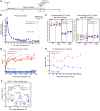


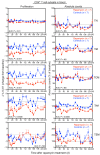

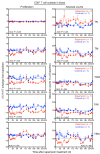
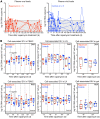
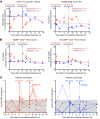

References
Publication types
MeSH terms
Substances
Grants and funding
LinkOut - more resources
Full Text Sources
Medical
Research Materials
Miscellaneous

